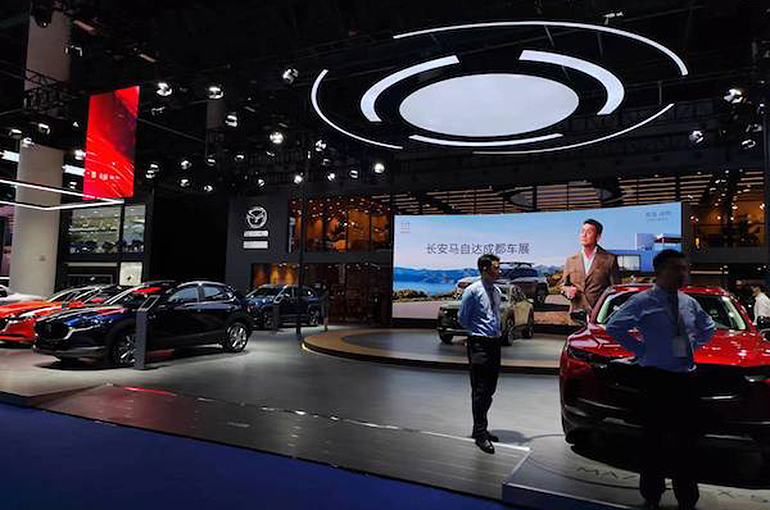 Foreign Carmakers Take Different Routes to Compete in China’s Auto Market
Foreign Carmakers Take Different Routes to Compete in China’s Auto Market(Yicai) Aug. 29 -- Foreign carmakers and their Chinese joint ventures are adopting different strategies to tackle cut-throat competition in China’s auto market, the world’s biggest.
BMW recently announced the acceleration of its electrification efforts. After taking control of its JV, BMW Brilliance, last year, the German automaker said in May that it would invest CNY10 billion (USD1.4 billion) to build a sixth-generation power battery plant five times larger than its existing one.
BMW, Mercedes-Benz, and Audi sold nearly 1.1 million cars in the first half of the year. BMW, the best-selling of the three, sold 44,900 electric vehicles, accounting for only 11.4 percent of the total.
Volkswagen has plumped for working directly with Chinese carmakers on new models. One month before the ongoing Chengdu Motor Show started, the German firm announced a tech framework deal with electric vehicle startup Xpeng Motors and the signing of a memorandum of understanding between its Audi brand and SAIC Motor.
Ford Motor decided not to showcase any Mustang electric models at the Chengdu Motor Show this year. The first electric Mustang in the Chinese market, the March-E, was launched at 2020 Auto China and began deliveries in December 2021.
Mustang models have had sluggish sales, as they failed to keep up with local rivals in terms of cost and functions. Changan Ford Automobile, Ford’s Chinese JV with Changan Automobile, formally took over Mustang in China in early August. Yicai learned that Ford intends to bring in Changan's new energy vehicle tech to develop new EV products.
Retail sales of Chinese-branded cars reached 940,000 units in July alone, up 15 percent from a year earlier, data from the China Passenger Car Association showed. Mainstream JVs saw their sales drop 28 percent to 590,000 units in the period. Independent Chinese brands seized 53.2 percent of the domestic market in July, up 5.8 points from a year ago.
NEVs will have a market share of almost 70 percent in China, and independent brands will take 70 percent if foreign-funded brands cannot beat their Chinese rivals, according to one forecast.
“Each marque faces life or death this year and in the next three years,” Li Xueyong, vice general manager at Chery Automobile, told Yicai. “They cannot ensure their survival unless they develop better and faster than in the past two years.”
Editors: Liao Shumin, Futura Costaglione